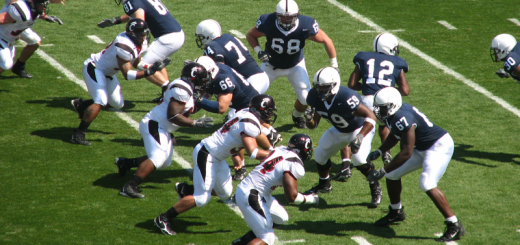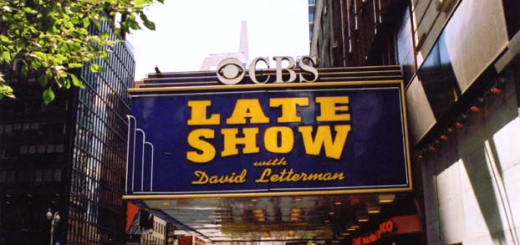The Story of DJ
Once upon a time there was a man who lived in a big city. He made his living as a disc jockey for a major radio station in that city. He was very popular, very successful at his profession. Most of the people in the city thought he was just about the best DJ they could possibly ever have and they really wanted him to be “their” DJ for pretty much forever, or at least throughout his entire career. This man, who WAS a DJ, was also known to all as simply “DJ.”
And DJ liked the fact that the people liked him. There’s something about being a DJ in a town that gives you visibility in that city, and also lets you the employee at a job know that the people who you serve, the people who listen to you ply your trade, can often appreciate you so much that you in return appreciate them, your fans in this form of loving relationship. Yes, DJ knew that they liked him and he also knew that he liked them back.
DJ also liked his co-workers, his fellow DJ’s at the station. There’s something about working together that forms a bond, a feeling of family amongst co-workers that often develops in the workplace. The laughter and joking around, the feelings of accomplishment, the moments of dealing with life issues that are just real. There’s a comradery that forms over the years that is hard to describe, but is something that leaves an impression on each and every worker in its own, different way. Yes, DJ liked his co-workers. And, they liked him equally in return. They felt a real sense of pride over what they had done together, like that special knowledge that THEY were really building their station into one of the best radio stations in the country.
DJ was paid pretty well to ply his profession, but he wasn’t necessarily the highest paid member of his profession. Other people who did what he did happened to get paid more than DJ. Even some of the other DJ’s at his station, his own “teammates” at this station, made more than him in salary. There’s something about the market for DJ’s (and for a lot of jobs in business throughout this great nation) where you can make more money in different markets, at different stations (or jobs) if THEY in another city are willing to pay you more, and if YOU are willing to get up and move your family, to offer your services elsewhere, when your contract is up, and you are, in a sense, a “free agent” on the market.
One year, DJ’s contract was up. He had finally reached the point in his career where he would be free to offer his services to any other company in the land for as fruitful of a contract as they would be willing to offer him. Everybody knew DJ was now available and pretty much everybody wanted him for THEIR station. And, since he was known by all in the business as a premier talent at the “top of his game,” so to speak, it was pretty obvious to all that DJ was going to get paid a whole lot more than he had ever made in his entire life. He would probably get paid somewhere close to the TOP salary structure in his business and, because he was a “free agent” at this time, he would be able to exploit the so-called laws of supply and demand for HIS situation.
So, in the summer of the year that he became a “free agent,” the courtship of DJ began. Several of the stations from some of the biggest cities in America presented him with very lucrative offers to ply his trade at their station in their city. It was no longer an idea of how much he would sign for (for he was going to get paid top dollar), it was a matter of WHO he would sign with.
Just like working people throughout the nation (those lucky enough to be able to make their own choices, and to not be forced into certain working situations due to economic necessity), DJ would be able to make his decision based on what working environment he wanted to work in, what city he wanted to both work in and have his family live in, and with what station, what company, and what organization he wanted to work with.
DJ met with representatives from all of the various companies interested in his services and seemed to narrow down the “offers” for his desired workplace situation to two companies/two cities. One was for a station in Dallas, a city in the state of Texas where he grew up when he was younger, and the other was from his current station in the city of Los Angeles, the city and organization where he matured and grew up to be a man in.
It was an unusual situation he was facing. Do you seek a new start in an old place (near your hometown and your old friends) where the city is familiar but the working situation is uncertain? Or do you continue on the path you are currently on in the formerly uncertain city that had nevertheless turned into your home for the last half dozen years, where you would be with your new friends and your working situation would remain relatively familiar?
Or, to put it more succinctly, do you stay where you are, or do you go work somewhere else?
DJ made a decision of sorts when he verbally told the station in Dallas that he wanted to work for them. He verbally agreed to a deal that would pay him extremely well and would put him in a new working situation with a new “team.” There was nothing signed for this deal, because, as the signing rules were governed, there would have to be a certain grace period that went into effect for a week, after which there would be that time when the new contracts could actually be signed. There was nothing in precedent that ever showed a person deviating from his verbal agreement (why wouldn’t a person want to honor an offer from another company to pretty much triple your salary?), but there was also nothing actually binding with a verbal agreement versus the binding nature of an actual written contract.
Somewhere during the grace period before actual contracts were signed, DJ started having second thoughts. Maybe signing with this new company WASN’T such a good idea. Maybe he really preferred to stay with his old company, at his old station. His boss and his friends at his old station heard that he was having second thoughts about his decision and decided to try to influence his decision. They had forged together a very good “team” at the old station, and they wanted to continue on the path that had seemed to be going in really good direction. They reminded him it was very fulfilling and enjoyable to work at their place.
Ultimately, DJ decided to change his mind and to actually sign back with his old company and to NOT go to work for the new company in Dallas. There was a lot of flak he caught from people who thought that his about face from the verbal commitment to the Dallas station was some kind of unethical decision, but it was HIS prerogative to be able to make the decision to choose to work for whatever company he wanted. HE was the person who was going to have to work at wherever it was that he was going to work for the next contract period and HE was the person that ultimately was going to have to deal with the consequences of his decision.
Just like anyone else in this country that makes decisions as to where THEY are going to work.
DJ decided that he wanted to stay at his old place. That he would be more comfortable with the known circumstances of what he already knew versus the unknown circumstances of what he might experience with a change to something new. It is a classic dilemma faced by workers all the time. That was the decision he made.
The story of DJ was the story of a man who had to make his own personal decision as to where he was going to work.
**************************************
Isn’t that pretty much what happened to basketball player DeAndre Jordan? With all of the pursuit of agendas that fans of various basketball teams seem to have these days and with all of the moralistic posturing that other fans of sports in general seem to demonstrate on the Internet, didn’t this just come down to a decision as to where this man in this instance would choose to want to work for the next four years?
Fans of various basketball teams and of other sports in general, who are hypothetically trying to fill up their team’s needs by hoping that various free agents sign with THEIR teams need to realize that the decisions that free agents make as to where they will end up playing is ultimately determined by where the person wants to work at their job, where that person (and/or his spouse and family) wants to live and what team that that person feels will best suit his or her ideas on what they want to do with their careers. These are THEIR JOBS we are talking about.




